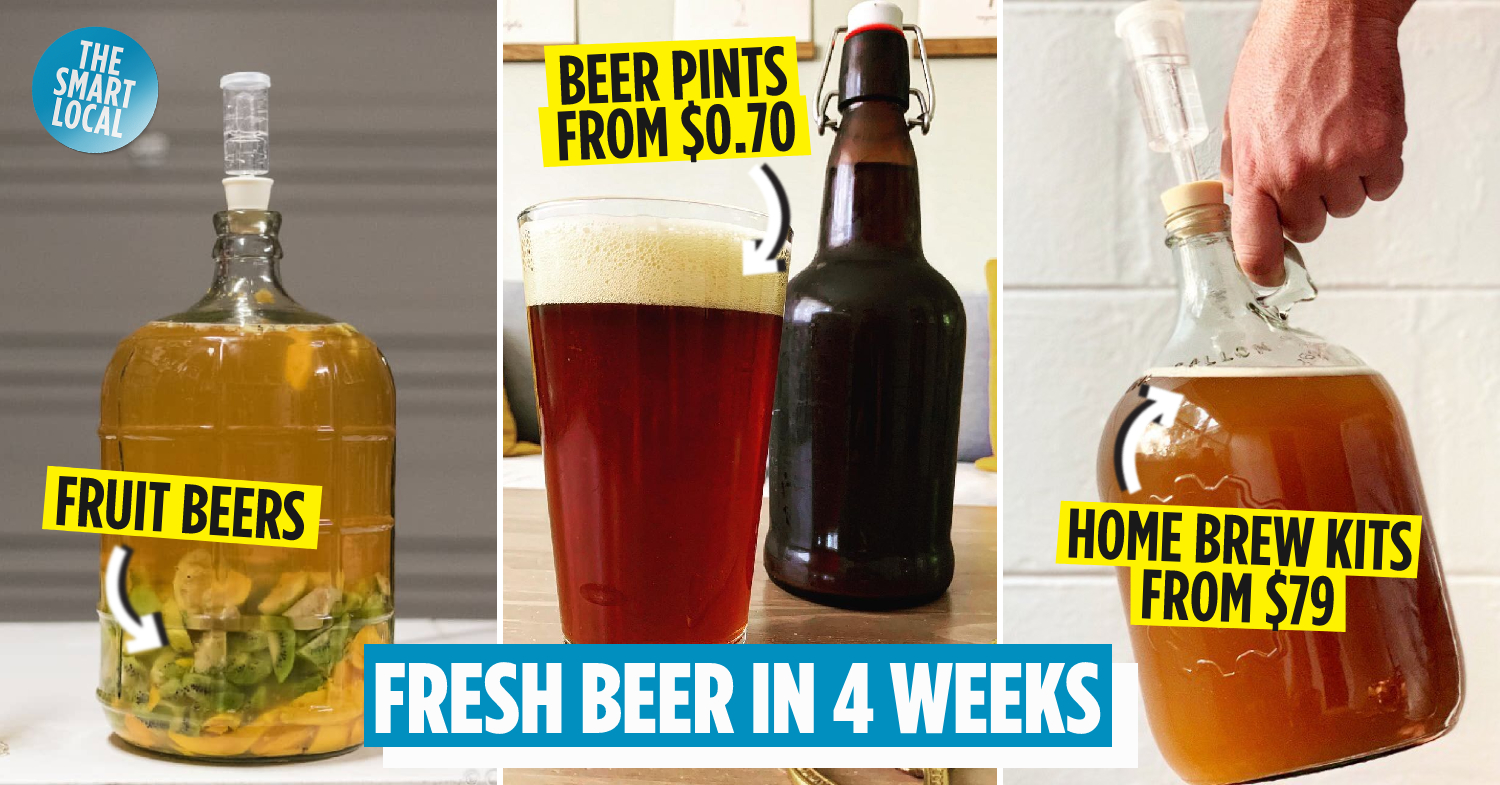Home brewing beer in Singapore
From craft beer stalls in hawker centres to beer-themed runs around Marina Bay, it’s clear that Singaporeans are mighty fans of a refreshing pint. But beyond happy hour at Clarke Quay and visiting the latest craft beer spots around town, true fans can deepen their appreciation of this refreshing tipple by home brewing beer and exploring the endless possibilities it has to offer.
While it needs commitment and can be a laborious process for some, home brewing lets you experiment with types of grains, yeast strains and even flavourful additives like mango and passionfruit. After around four weeks, you’ll have a beer you can call your own – great for gifts and the perfect conversation starter at parties.
This guide to home brewing will walk you through the equipment, ingredients and process so you’ll get a headstart on your journey from beer-lover to brew-master.
Check out our other guides:
- Urban gardening in your HDB flat
- Buying your first film camera in Singapore
- Guide to recycling in Singapore
What you need for home brewing at home
Homebrewing ingredients
From chocolatey stouts to fruity IPAs, all beers mainly consist of three ingredients: grains, hops, and yeast. While they seem simple, each ingredient offers its own vast range of possibilities: be it wheat, corn, rice, rye, oats or barley for your choice of grain, to over 80 different types of hops and countless strains of yeast – the sky’s the limit.
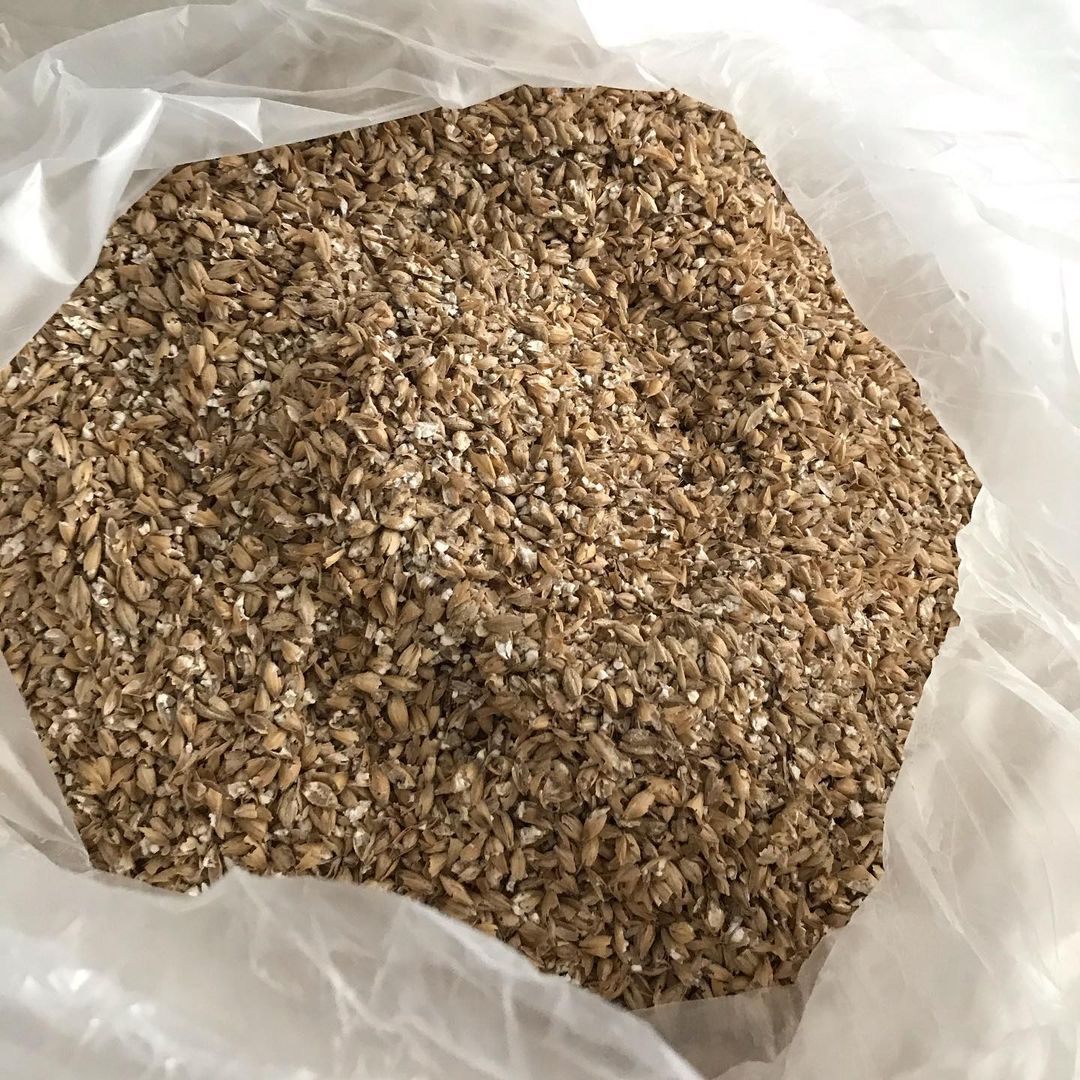
A custom grain bill combining pilsner, pale and oat malts. The different grains are allowed to germinate, before being dried and cracked with a special machine.
Image credit: @botakscrafthaus
Most common beer styles you’d find on supermarket shelves use barley malt, but home brewers will get to experiment with different grains to produce everything from silky oatmeal stouts to spicy rye IPAs – or Rye-P-As.
The combination of grains, called the grain bill, depends heavily on beer style. Most brew supply stores will allow you to concoct your own mixture of grains, but home brew kits will come with tried-and-tested combinations of classic beer styles.
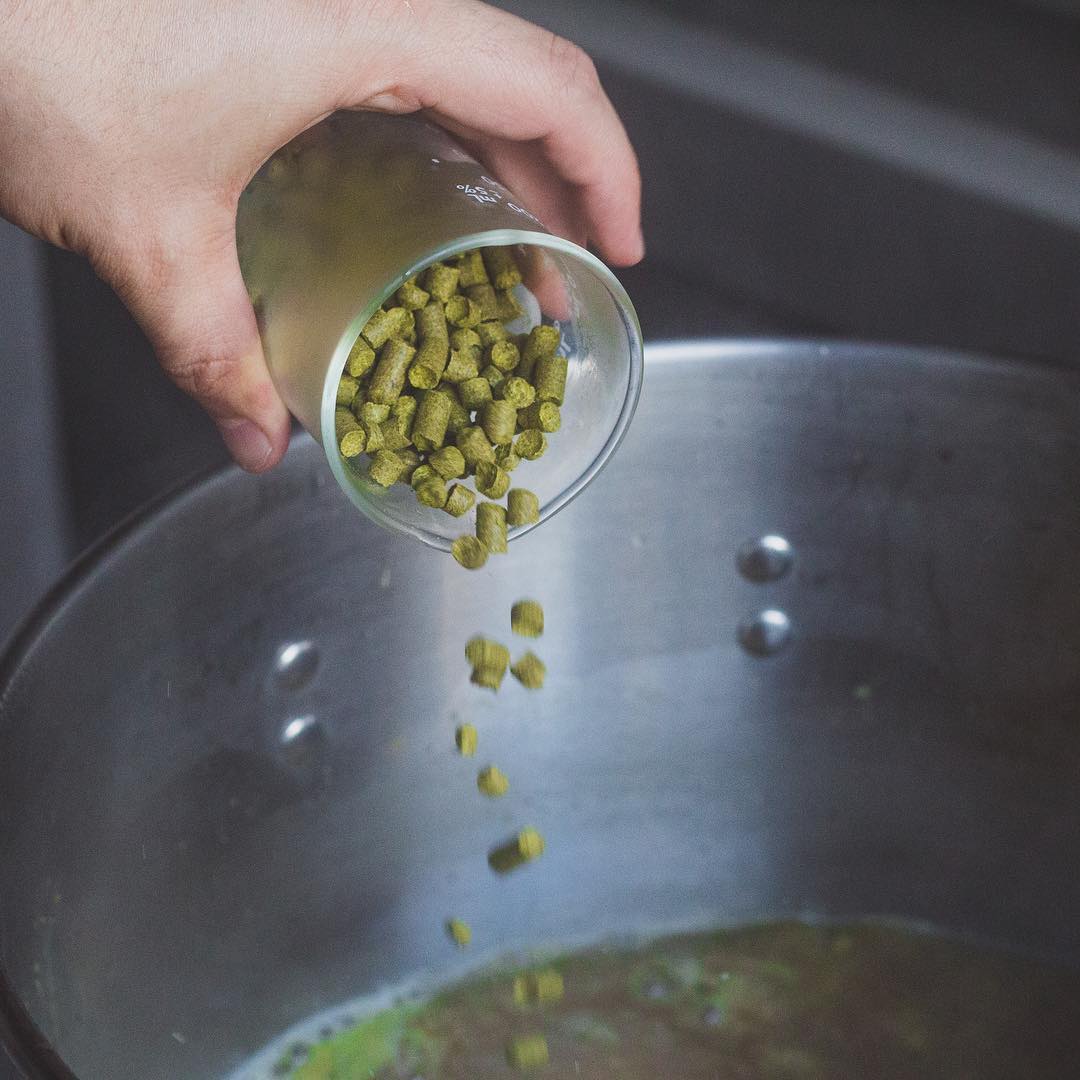
Though they occur in nature as flowers, hops are commonly available at brewing supply stores as dried pellets for easy storage.
Image credit: @brewcabin
Bitterness can be quite an enjoyable flavour – many of us love dark chocolate or intense coffee. With beers, its bitter notes primarily come from hops, which also add tons of citrusy, floral and even tropical flavours while helping to preserve the freshness of your brew.
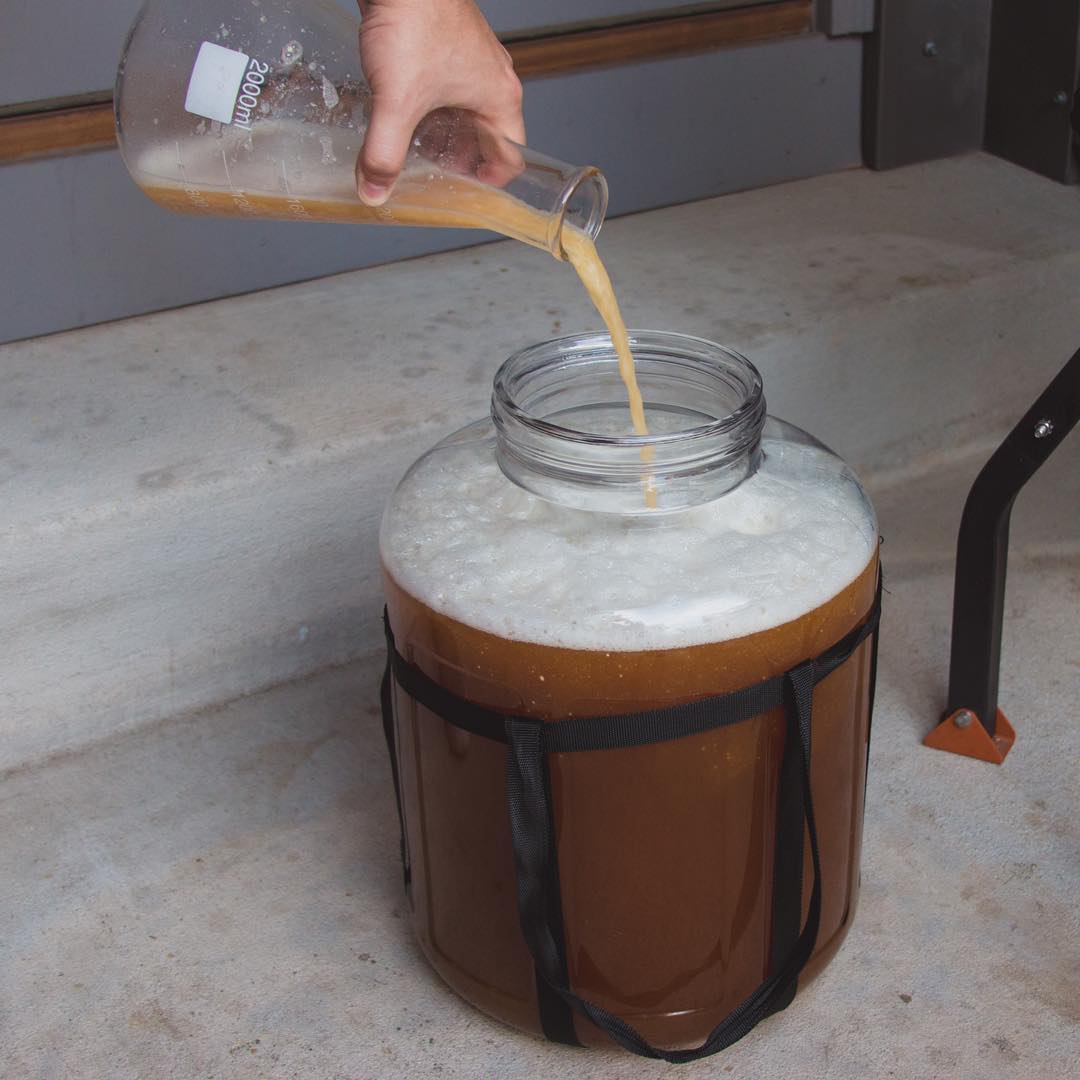
Yeasts are available in both powdered and liquid forms
Image credit: @brewcabin
Home bakers know that yeast strains are a dime a dozen – but for beer, two main types matter: top-fermenting Ale Yeasts and bottom-fermenting Lager Yeasts. Simply put, in tropical Singapore, Ale Yeasts are generally more beginner-friendly as they stay active in warmer environments of 16-24ºC, and are less temperature-sensitive.
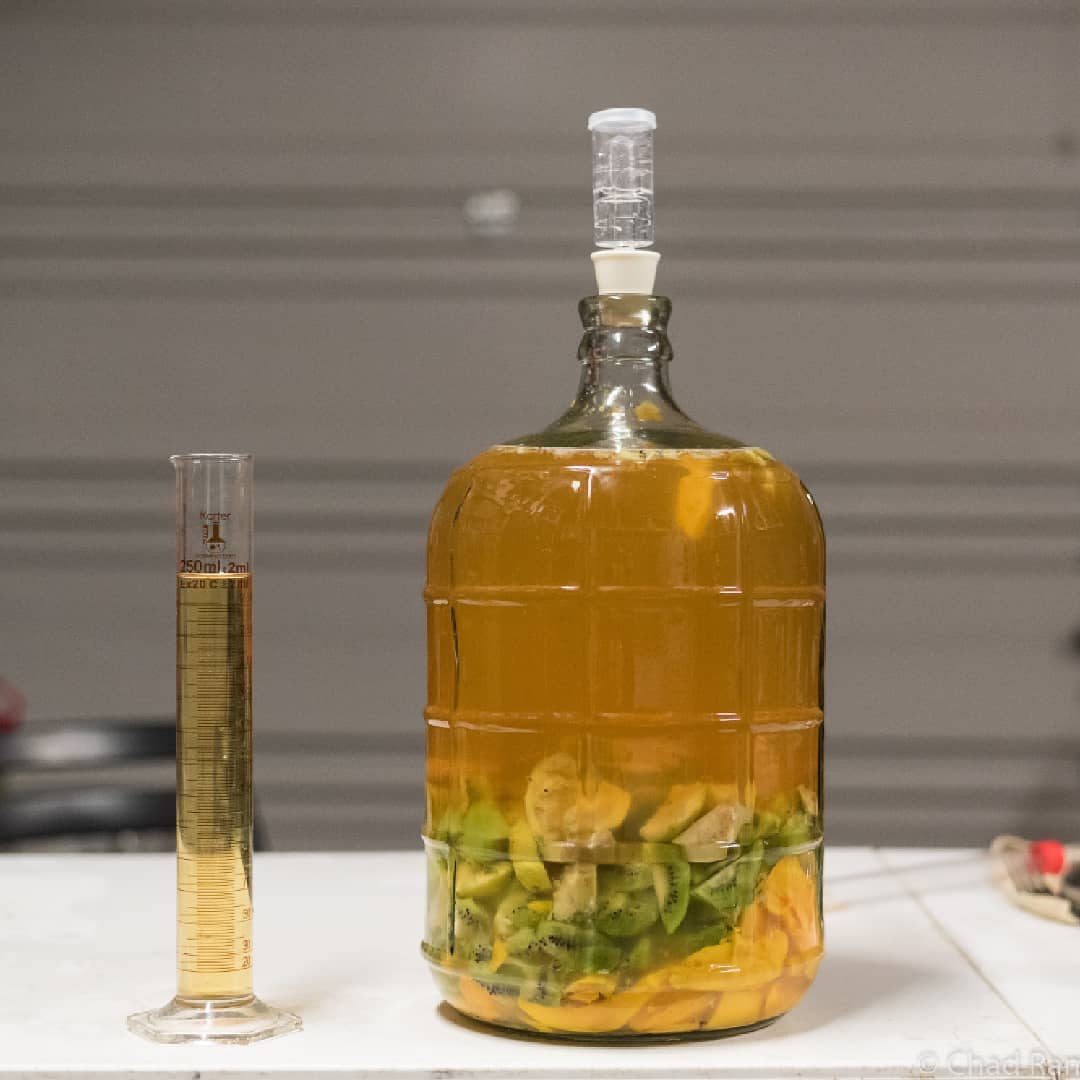
You can also experiment with slices of fresh, ripe fruit in your carboy during the first fermentation – like cherries, peaches and raspberries.
Image credit: @chadhomebrews
Homebrewing equipment
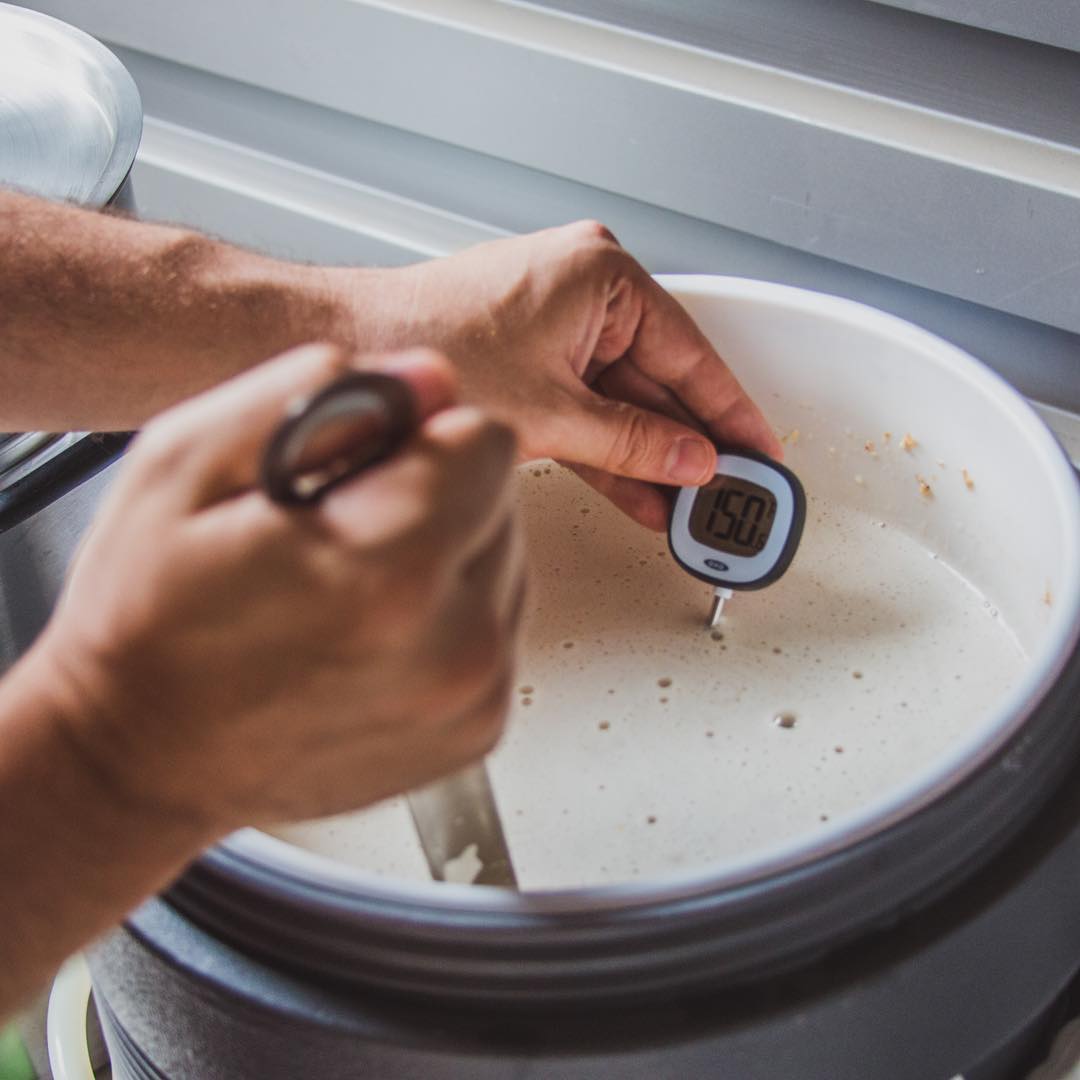
A thermometer is essential to ensure that the mash is the temperature that’s optimal for the yeast
Image credit: @brewcabin
To get started, you’ll need the following basic equipment:
- Large pot to boil your grain mash
- Mash bag to hold the grains
- Whisk or spoon to stir
- Large airtight glass jar called a carboy
- Cooking thermometer
- Airtight bottles to store the final product
- Auto-siphon to fill the bottles
- Food-safe sanitising liquid to disinfect all your equipment
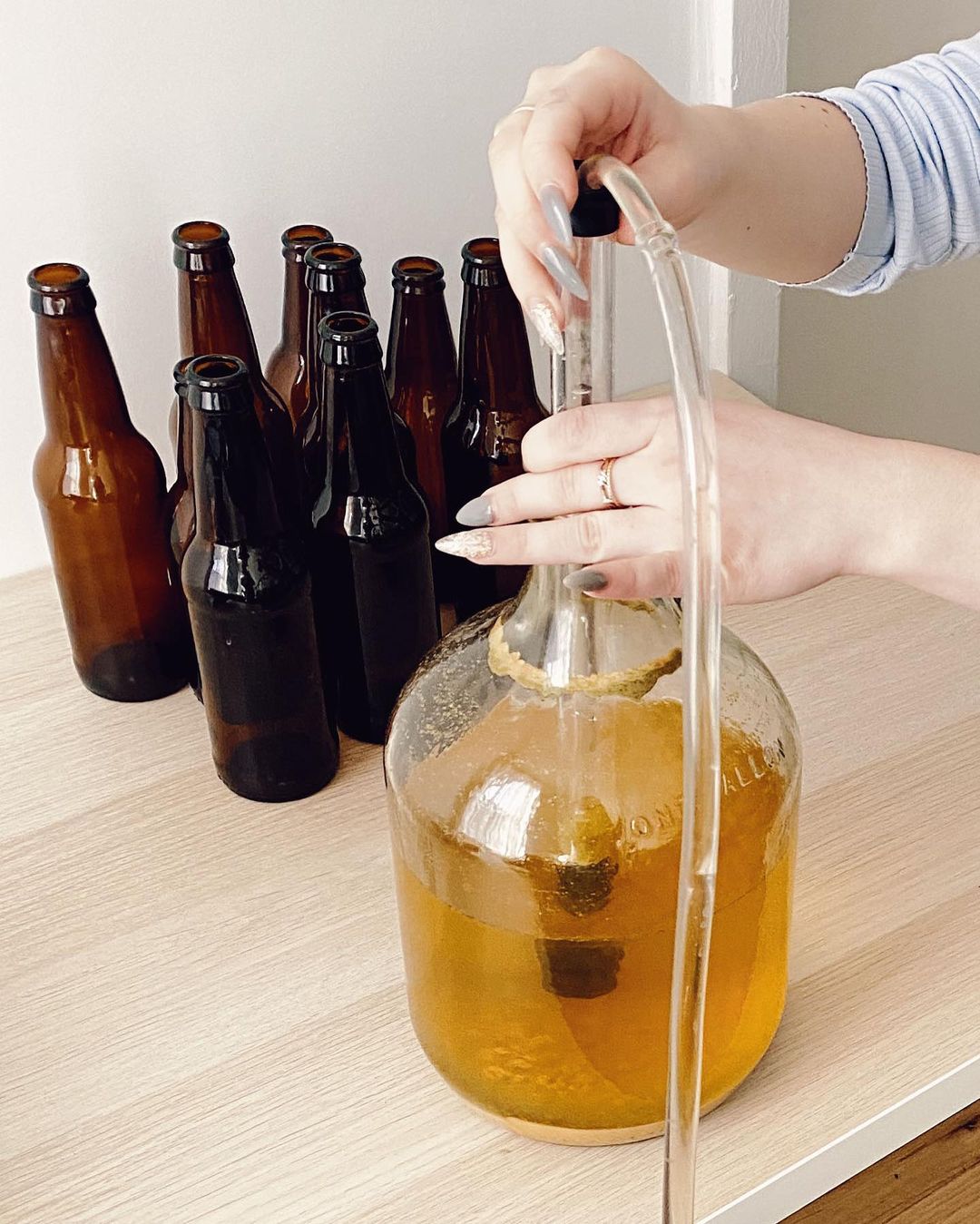
The auto-siphon lets you easily fill your beer bottles with clear liquid from the top of your carboy, avoiding the sediment at the bottom.
Image credit: @brooklynbrewshop
While these will be sufficient to get you started, additional equipment can be helpful:
- Airlock to ensure carboy is kept sterile
- Hydrometer to measure alcohol content
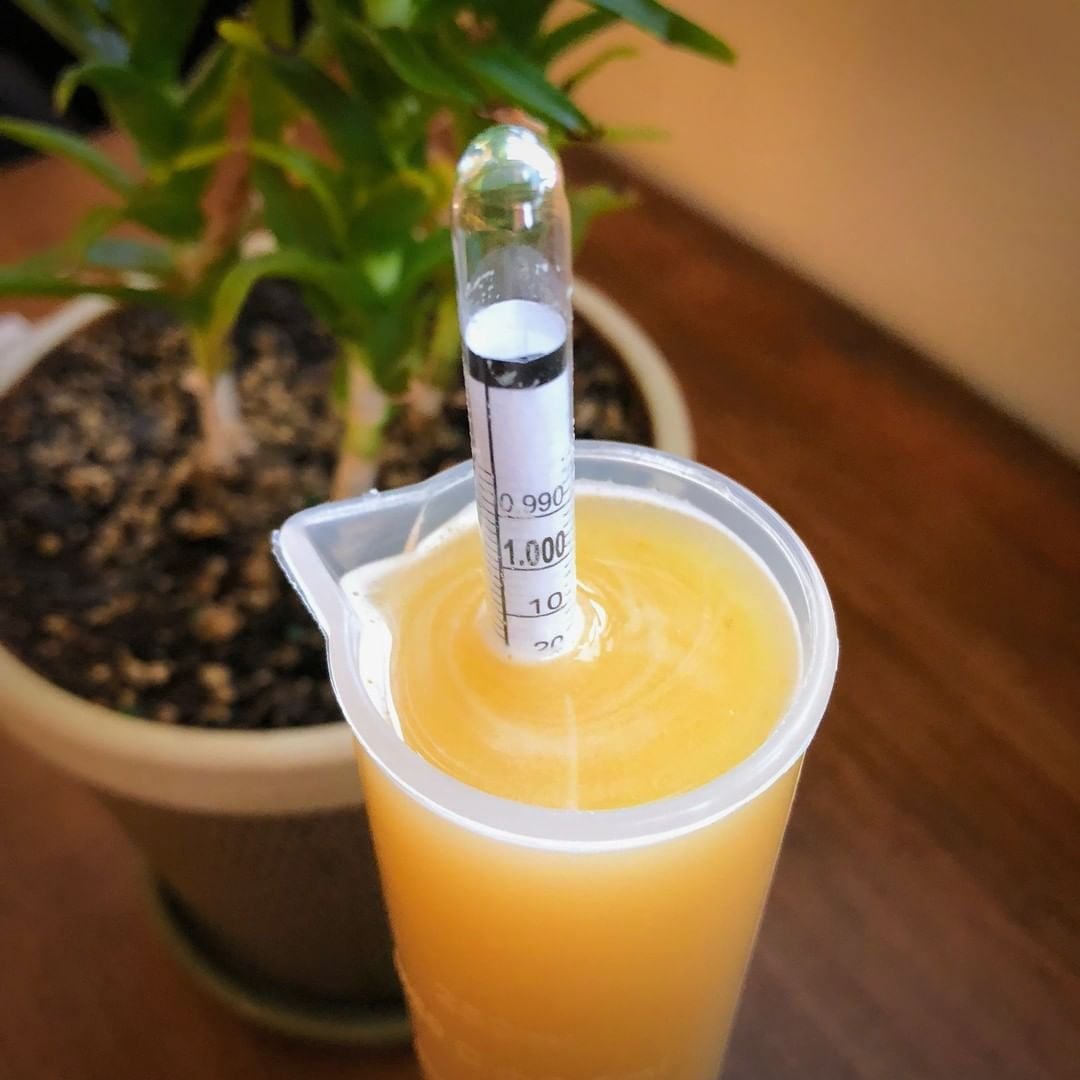
A hydrometer measures the density of your brew, letting you deduce the alcohol content through a formula.
Image credit: @brewcabin
Homebrewing kits in Singapore
In Singapore, all three ingredients and basic equipment can be readily obtained from home brewing supply shops. But to get started, it’s best to opt for home brewing kits to ensure you’re fully prepped for a crash course on this ancient craft.
1. Fermentables – Brewing kit delivery from $79/8 pints
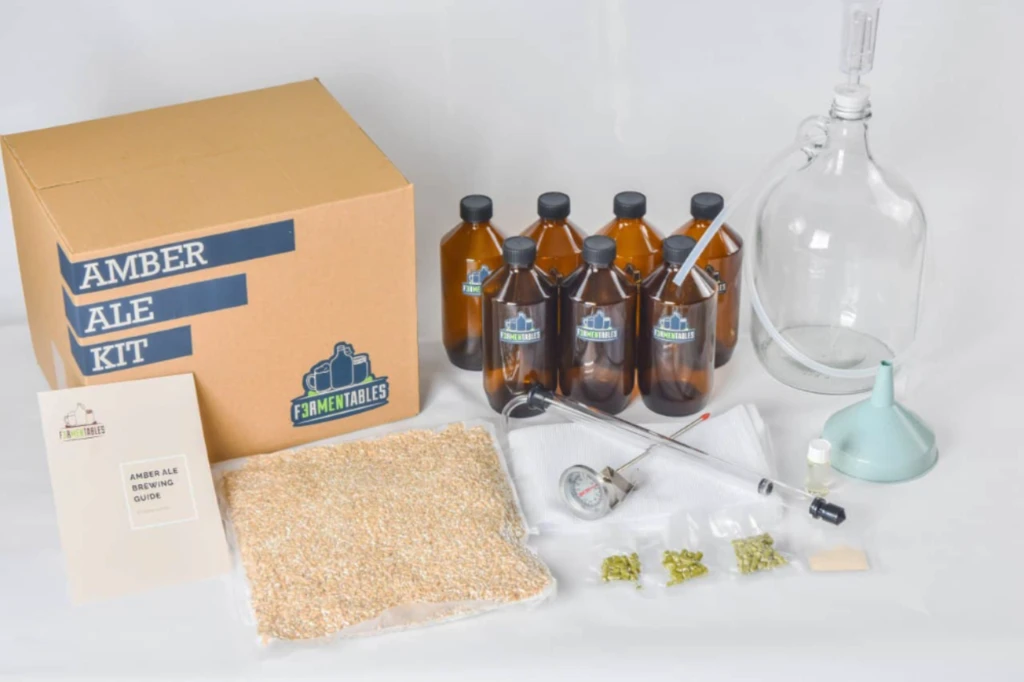
Image credit: Fermentables
With a long list of ingredients and equipment, it can be quite a daunting task to ensure that you’ve not only got a complete set to start with, but that the different tools work well together. Fermentables packs all the equipment and ingredients you need into two neat boxes and delivers it to your doorstep – making it an ideal gift for your beer-loving friends.
You can choose from the toasty caramel-like flavours of their Amber Ale Kit ($79), their fresh and fruity Pale Ale Kit ($79) or bold Porter Kit ($85). Each batch yields about a gallon of beer (3.79L), which you can package in the seven included glass bottles.
Refill sets of grains, hops and yeasts are good for an extra gallon batch and start from $16, letting you try your hand at brewing different beer styles while making the most of your equipment.
Cost per pint (500ML): $10.42 (kit), $2.11 (refill)
2. Homebrew Co-op – Largest range of hops & yeast for adventurous brewers
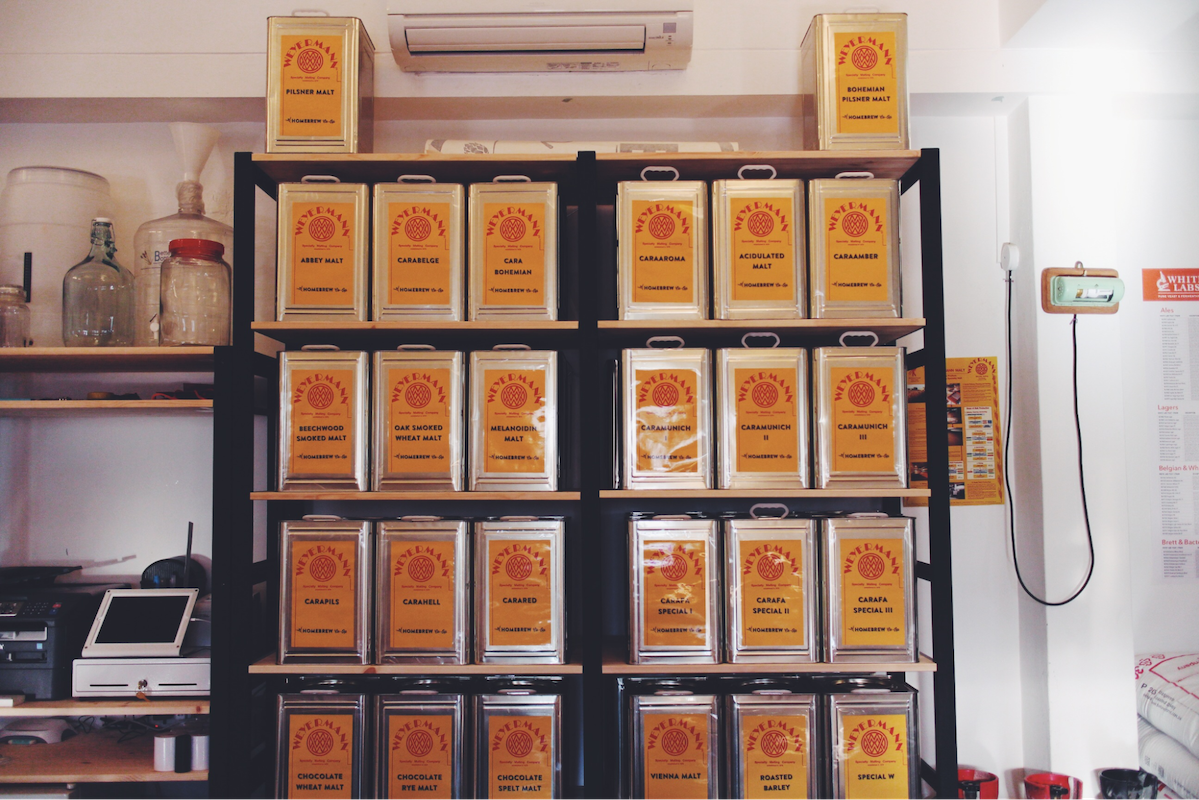
Image credit: Beer Can Lah
For homebrewers looking for a personal touch, Home Brew Co-Op offers over 19 types of hops and five brands of yeast for you to experiment with.
It’s also the go-to for those looking for larger brew kits for big gatherings or to share with your extended kaki. They offer Morgan’s brew kit ($150), which lets you rake in savings with a large 23-litre batch of tipple, with ingredient top-ups at $32. You can also get creative with their unique Mangrove Jack offerings like Raspberry Berliner Weisse ($50/23L) or Apple Cider ($36/23L).
Cost per pint (500ML): $3.20 (kit), $0.69 (refill)
3. iBrew – Malt extract kits for easy 2-step beer brewing
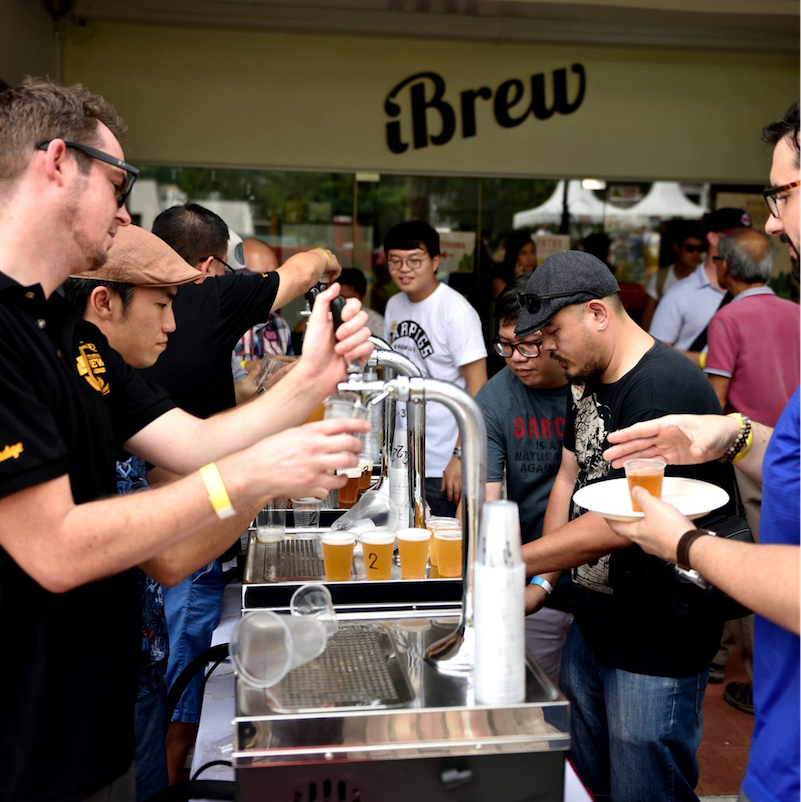
iBrew has been an important part of the local homebrewing scene, and regularly holds brewing festivals and competitions.
Image credit: iBrew
Bringing huge pots of water up to heat and keeping an eye on the thermometer for about an hour as you let the grains mash in the hot water, obtaining the wort from your grains is one of the more laborious processes when home brewing. To skip this step altogether, iBrew offers extract kits that let you obtain the wort when you mix these pouches of concentrates with hot water.
Whether you’re a Guinness or Corona fan, you’ll be able to brew anything from Irish Stout to Mexican Cerveza ($177/23L kit, $32/refill) with their collection of Coopers International brewing extract kits.
But beyond convenient home brewing, iBrew also offers a mind-numbing range of brewing, bottling and even dispensing taps to create the ultimate hangout for friends and family. They offer the 30L Guten Brewing System ($700) perfect for serious homebrewers looking to level up, or massive 19L kegs ($180) to store copious amounts of your booze for that upcoming party.
Cost per pint (500ML): $3.85 (kit), $0.70 (refill)
4. BrewCat – Brewing courses from $80/pax

Image credit: BrewCat Sg
For an enjoyable weekend activity with your pals, BrewCat offers brewing courses from $80/pax for those keen on getting expert tips from experienced brewmasters. They’re also home to a wide variety of over 21 malts ($0.80/100G), for you to brew everything from classic Belgian Tripels to funky American IPAs.
They’re the top pick for those looking to try brewing an assortment of brew styles. You’ll also find extra tools and gadgets for a step up from basic brew kits, including bottle cappers ($26), liquid sanitisers ($12/4-ounce bottle) or even Whirlfloc Tablets ($5/10 tablets) to clarify the beer during the boiling phase.
Steps to brewing
Fresh, fizzy, and full of flavour, beer is actually surprisingly simple to brew at home – you won’t need a Tiger Brewery setup at home to get great results. Requiring only three steps, it’s no wonder it’s one of the oldest beverages and the third most consumed in the world by volume.
To start off, you’ll need to ensure all your vessels and equipment are fully sanitised – so your wort doesn’t end up mouldy or exceptionally funky after you’ve let it rest for about a week. Next, bring a large pot of water to a boil to prepare for the first step – wort production.
1. Wort production – 1.5 hours
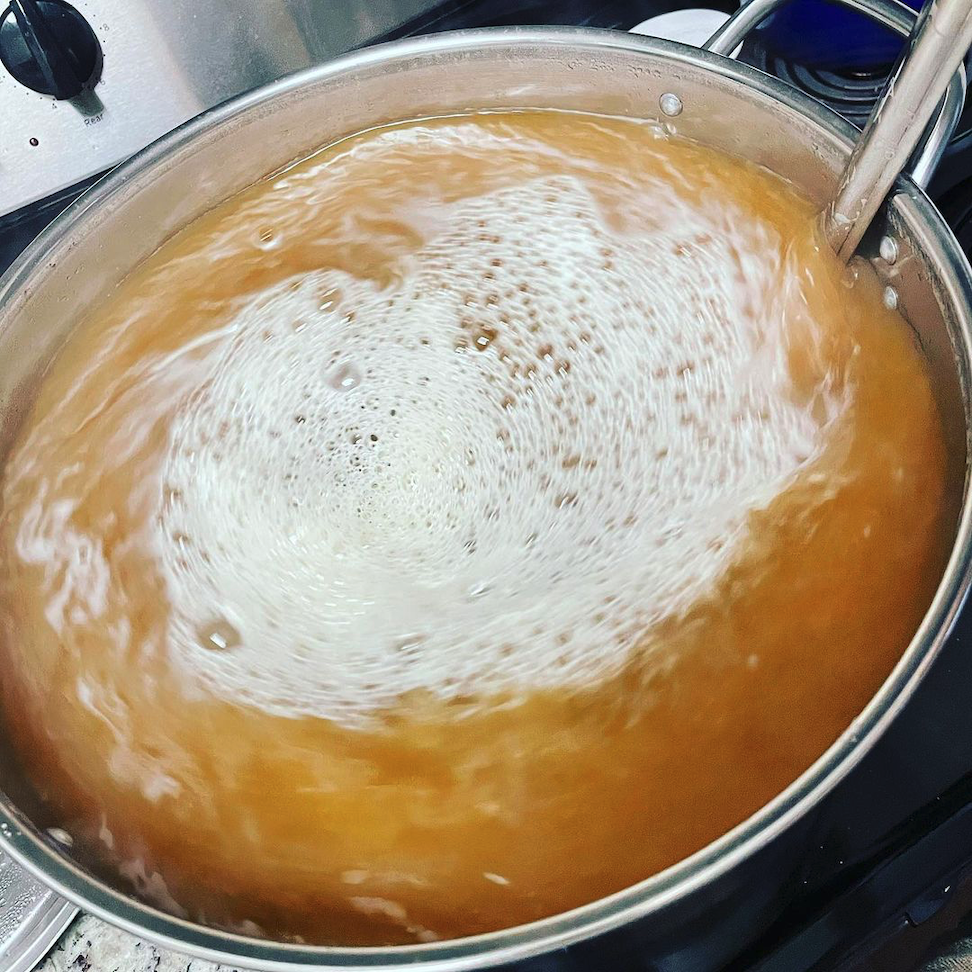
Depending on the recipe, you might also have to add multiple doses of hops throughout the cooking and fermentation phases.
Image credit: @elhefebrewzhops
To get your malts ready for brewing, you’ll have to cook the grains in hot water for about an hour to turn it into wort – a flavour-packed sugar-rich liquid that will eventually become your beer. It’s best to add your grains in a mash bag, which lets you fully steep the malts in the hot water before conveniently removing the residue from the pot when you’re done.
During the cooking stage, you’ll have to keep a close watch on the thermometer to keep the liquid just under boiling point, while constantly stirring to ensure the grains don’t clump together. Removing the grains at the end of this process is also much easier if you use a mash bag – letting you remove the soggy, messy heap from the pot in one motion.
2. First fermentation – Around two weeks
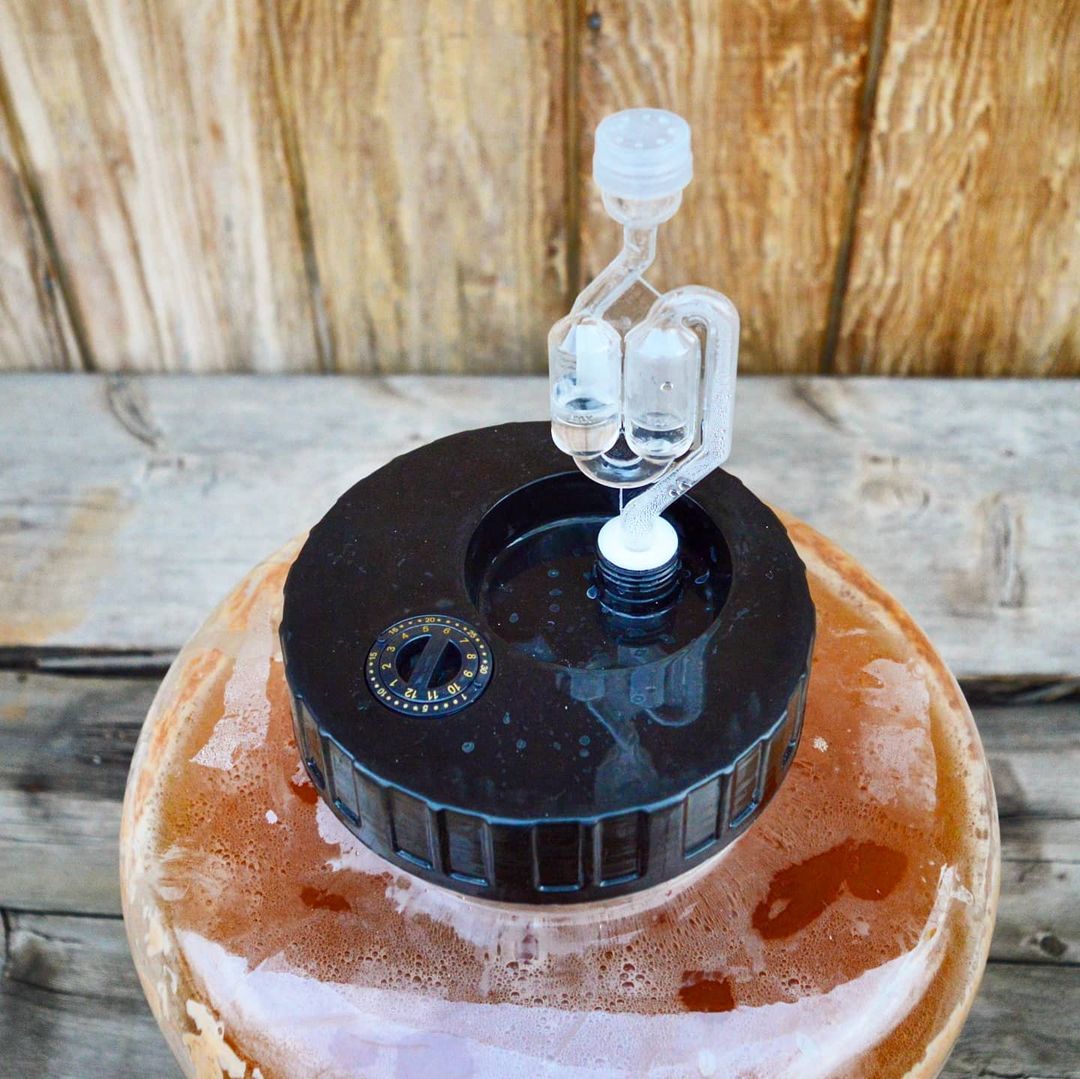
Once you’ve added the wort and yeast in your carboy, an airlock in the lid allows carbon dioxide to escape while preventing germs from entering by using a layer of sanitiser liquid.
Image credit: @cierapearl
Once your wort has cooled to room temperature – around 26ºC – you’re ready to get started with the first fermentation. Using a funnel, pour the contents of the pot into the carboy. You’ll then pitch the yeast by adding the powder or liquid into the carboy and shaking it vigorously to spread it out evenly.
Just like with bread, the yeast will feed on the sugars and turn it into alcohol, but instead of creating bubbles in the dough, the carbon dioxide produced will be released via the airlock you’ve placed at the top of the carboy.
Once your carboy is all jigged up, you’ll have to find a cool, shady corner to let the yeast work its magic.
3. Bottle conditioning – Around two weeks
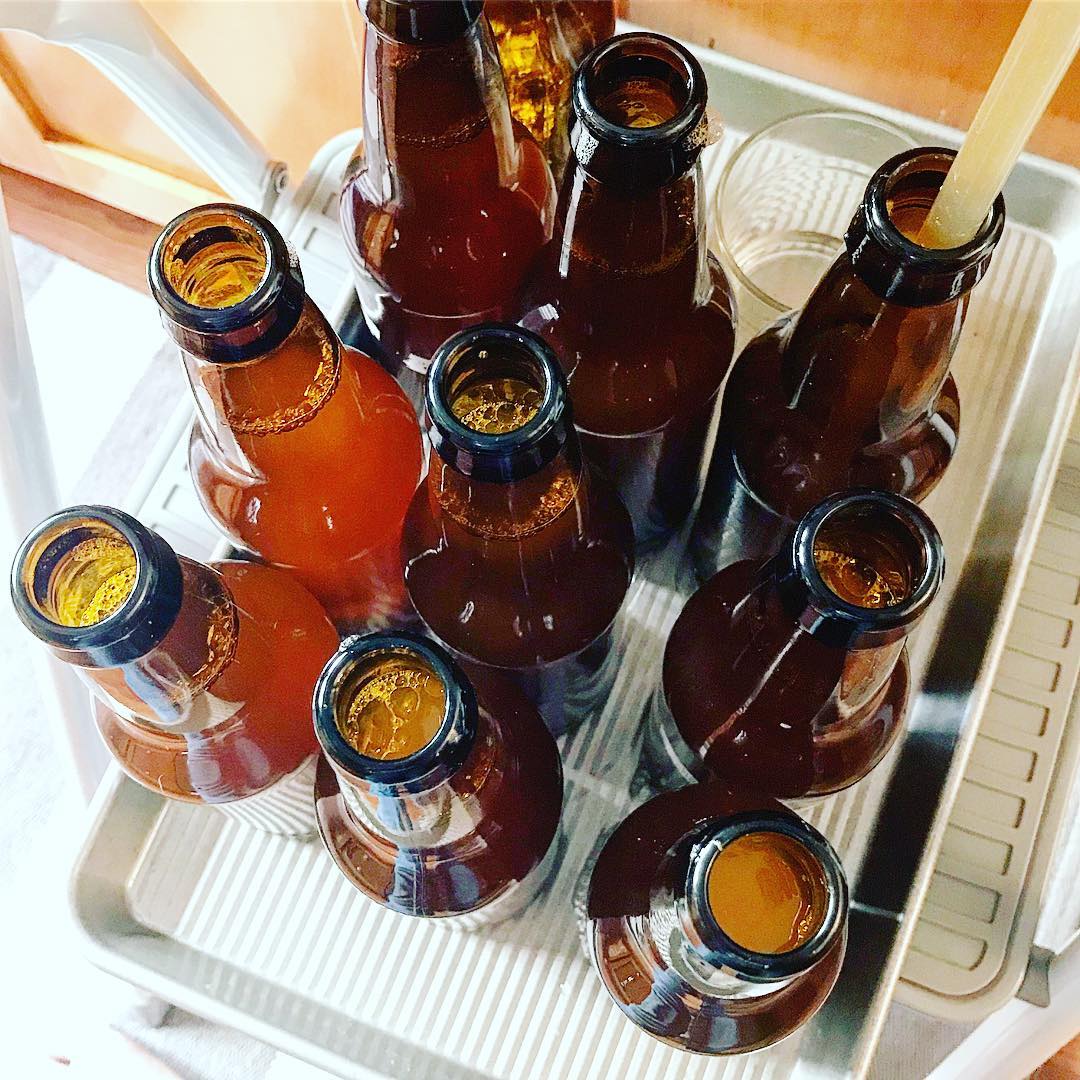
Many commercial beers we’re familiar with are force-carbonated by machines to create fizziness, but bottle-conditioned beers can boast more complex flavours and a silkier texture.
Image credit: @theboldbrewer
After about two weeks, you’ll be ready for the second fermentation, which will take place in the individual bottles – which is why it’s referred to as bottle conditioning. This essential step creates the fizziness that makes beer such a universally loved beverage.
As with every other step in the home brewing process, you’ll have to use sterilising liquid to ensure that your equipment is germ-free.
At this juncture, the wort in your carboy would have split into layers: a bold, beer-coloured liquid, and a mucky, foamy residue. To ensure the bottles are topped up with only the good-tasting stuff, an auto-siphon lets you quickly and conveniently fill each one to the right level for the right amount of carbonation.
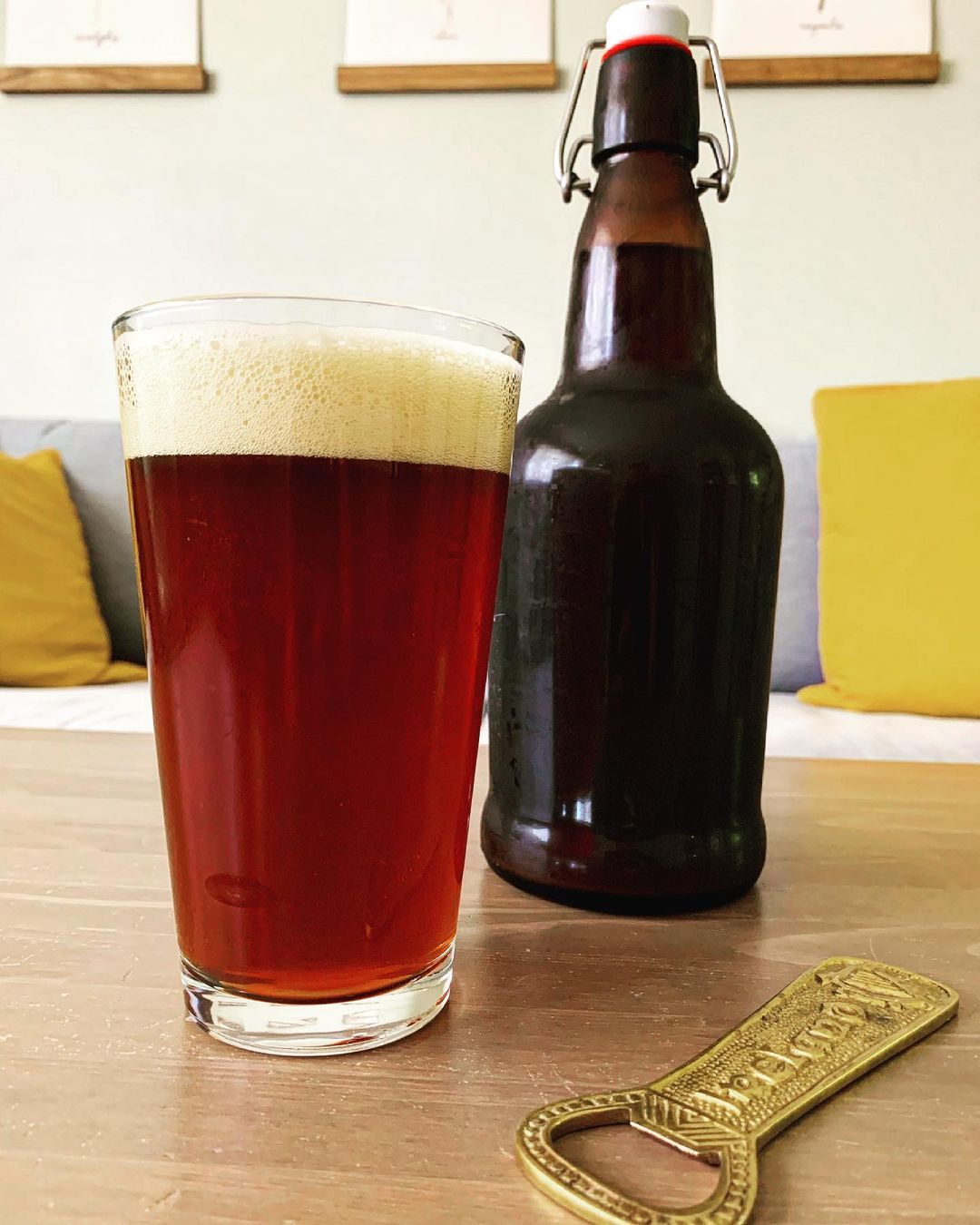
Tinted flip-top glass bottles are ideal for home brewers as they are highly reusable and protect the beer from light and oxygen
Image credit: @danielpatrickstover
Before you seal each bottle off with the airtight cap, you’ll have to add a small amount of sugar syrup to kick-start the second round of fermentation. This stage is completed within around two, but your beers will only be ready for consumption after a few days of refrigeration.
When they’re about to be ready, seasoned brewers will start cracking open beers every few days during this time, so they’ll get to sample the beer at its absolute freshest – a unique experience you can only get by brewing at home.
Get started home brewing in Singapore
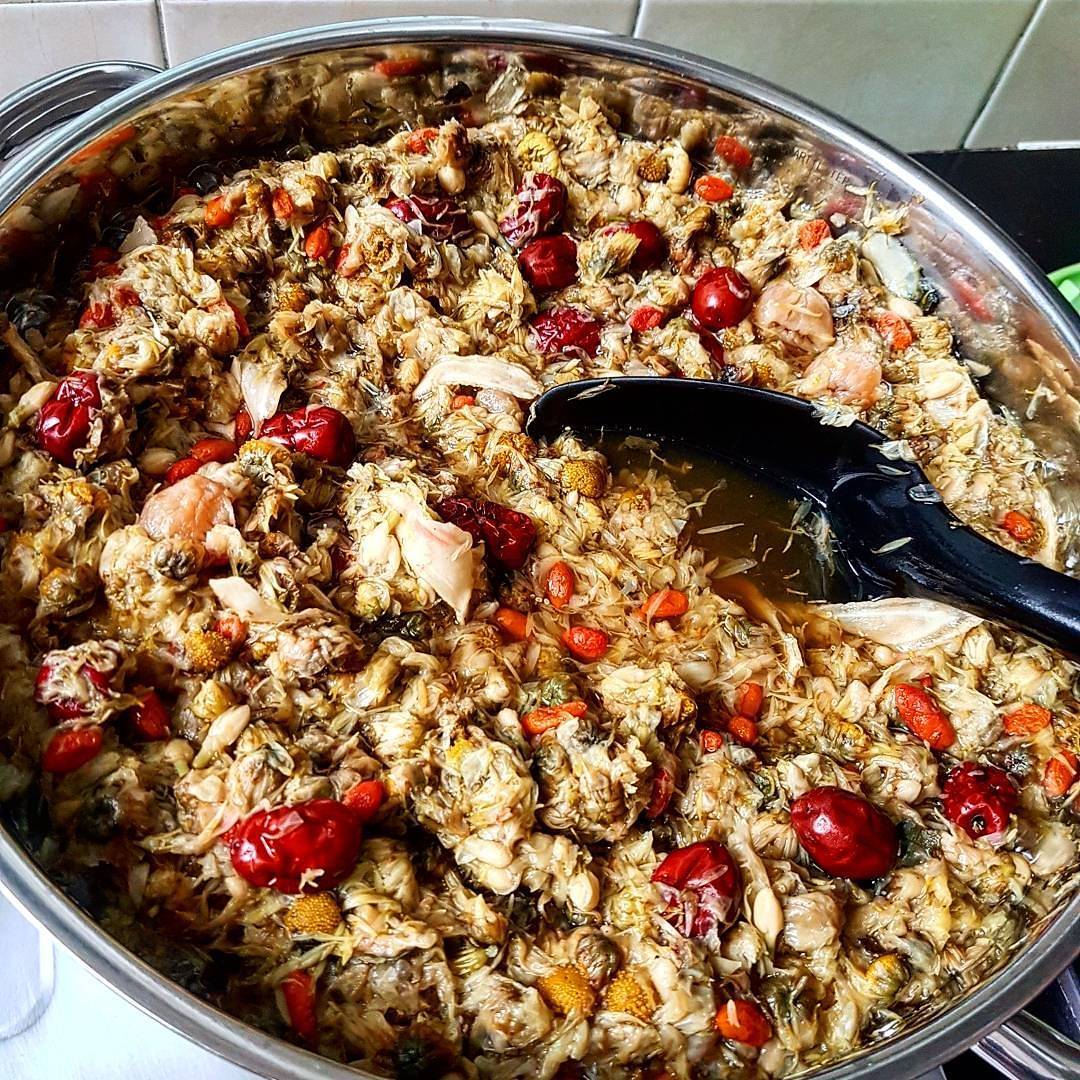
Inspired by the traditional Eight Treasures Tea, a local brewer experiments with Chinese herbs like chrysanthemum, ginseng and red dates in his wort.
Image credit: @tall_youngster
For beer lovers and aficionados alike, home brewing is a great way to get a better understanding of this delicious beverage we know and love. Beer kits are a convenient way to start, but for those on a budget, common household items will suffice.
Whether you’re using upcycled plastic water bottles or thousand-dollar electric brewers, you’ll get good results as long as you stick to the three basics of beer brewing: sanitise all your equipment, store beer in a cool and dark place, and keep your containers airtight.
There’s an endless list of recipes online and a vast variety of ingredients available in beer supply stores in Singapore for you to try out. From whipping up a tropical Mexican Cerveza to a salty and sour German Gose, home brewing will introduce you to different cultures, ingredients and brewing methods. Who knows – you might just become the resident cicerone.
Cover image credit: @chadhomebrews, @danielpatrickstover, @brooklynbrewshop
